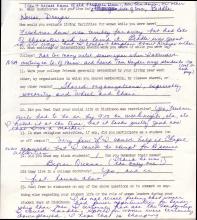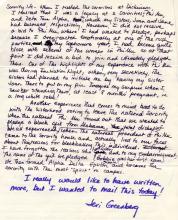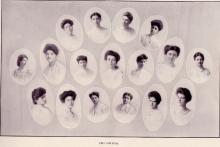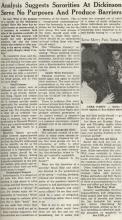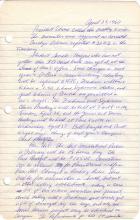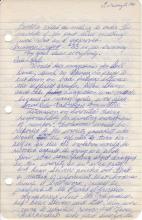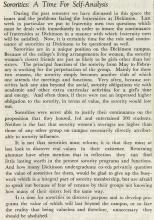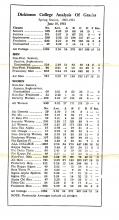A Female Student Recalls Restrictions Still on Campus in '61
From her time here at Dickinson, a female student of the class of 1961, recalls the restrictions women still faced on campus in the "Women as Leaders" survey. Women's social life was restrictive in that "Freshmen girls had to be in by 9:00 p.m. on weeknights, etc." The women's Freshmen dorms were also "terribly far away" from campus. Women's sports were also downplayed, which she experienced firsthand.

